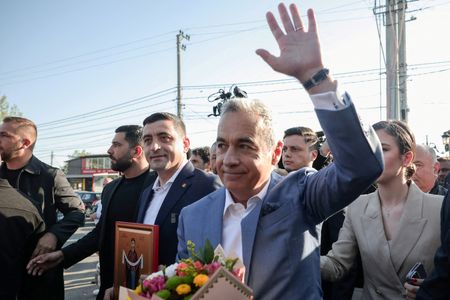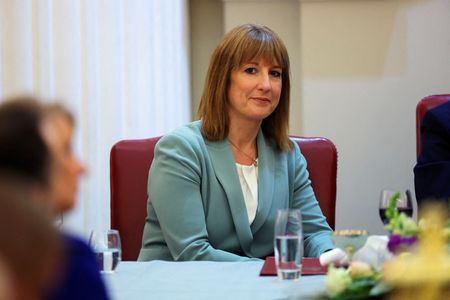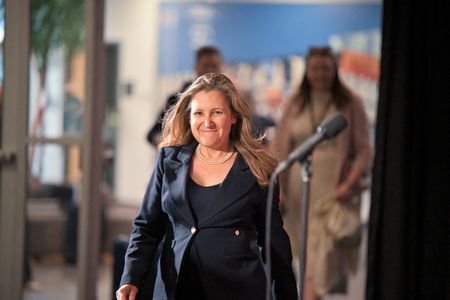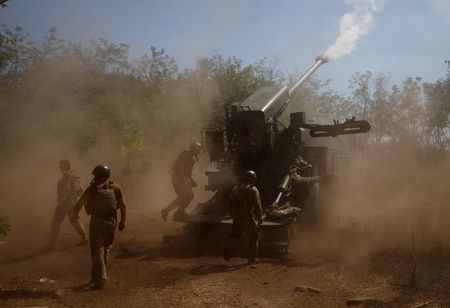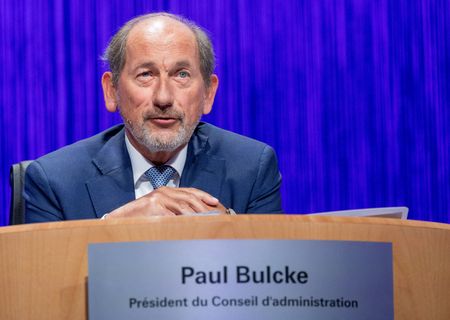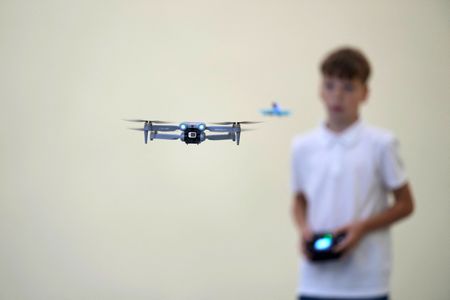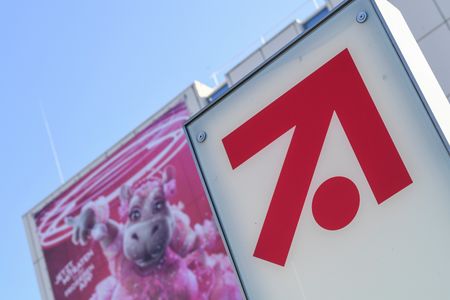BUCHAREST (Reuters) -Romanian prosecutors sent Calin Georgescu, the pro-Russian far-right frontrunner in last year’s cancelled presidential election, to trial on Tuesday on charges of attempting to disrupt national security.
The European Union and NATO member state canceled its presidential election in December on account of suspected Russian interference in favour of Georgescu, a strong critic of NATO, Brussels and Western support for Ukraine. Moscow denied the accusations of meddling in the election.
Prosecutors said on Tuesday evidence showed that after the election was canceled he had conspired with Horatiu Potra, a former French Foreign Legion soldier, to stage violent protests.
It was unclear when the trial would start.
The election, which was re-run in May was ultimately won by pro-European centrist Nicusor Dan. Georgescu was banned from running again and placed under investigations in two cases. He has denied wrongdoing.
POTRA AND OTHERS TO GO ON TRIAL
Alongside Georgescu, prosecutors on Tuesday indicted 21 other people in the case, including Potra, a mercenary who had previously worked as a military contractor in the Democratic Republic of Congo.
Prosecutors said in a statement that after a covert meeting with Georgescu, Potra formed “a paramilitary group of 21 people which decided to travel to the capital Bucharest where … they would trigger protests meant to draw wide support from the population against rule of law institutions.”
Prosecutor General Alex Florenta told reporters criminal investigations had revealed a pattern of hybrid attacks against Romania over the last year, seeking to influence voters and weaken state institutions.
The campaign included cyber attacks, public events and online disinformation. Ransomware cyber attacks associated with pro-Russian groups Lockbit, Lynx, Akira and Ransom Hub targeted over 13 state institutions, 12 transport firms and 17 banks, Florenta said.
While similar hybrid attacks had also occurred in the Czech Republic and Poland, Florenta said in Romania they focused on engaging extremist groups which ramped up hate speech with narratives which fit Russian patterns and propaganda channels.
Moscow has denied involvement in disinformation campaigns.
Georgescu had benefited from intensive online campaigns, Florenta said. Data showed the former presidential candidate had been promoted on over 40 online groups known to spread disinformation, with 1.3 million members.
(Reporting by Luiza IlieEditing by Ros Russell)

